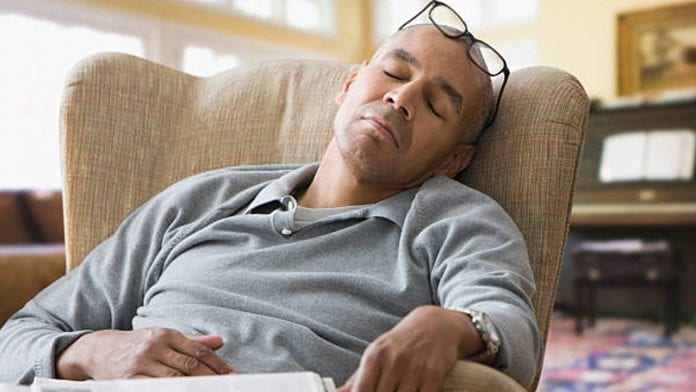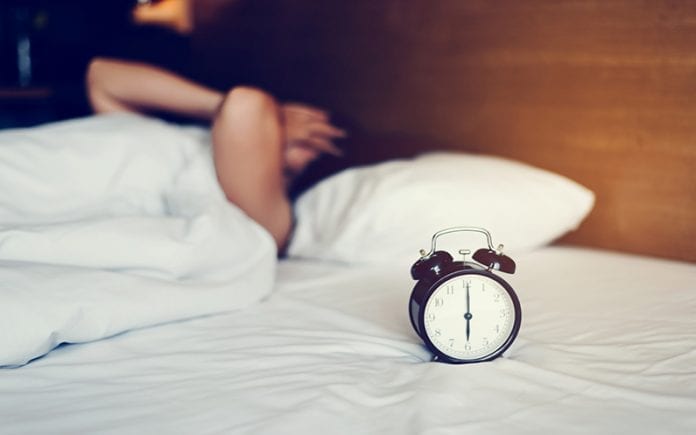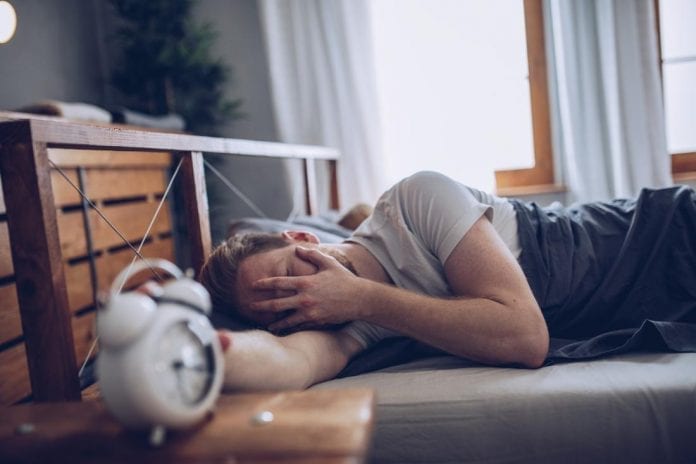For the most part, it has been common sense for many years now that sleep deprivation comes with negative effects on one’s body. However, what many individuals are not aware of is that oversleeping is just tantamount to sleep deprivation. In fact, oversleeping is usually harmful.

The quality of an individual’s sleep plays a vital role in both mental and physical health. Usually, oversleeping come with many negative issues on a person’s body like what deprivation does. Obviously the proofs are backed by some credible researches.
Many researches indicate that oversleeping can trigger certain problems into play. Oversleeping’s cause and effect is still a subject of an ongoing research and certain studies in science.
But, even though the research of oversleeping continues to widen, one certain thing is proven: oversleeping is associated to health problems which include impaired fertility, stroke, heart disease, diabetes, higher risk of obesity, pains and inflammation, depression, and cognitive impairment.
Oversleeping’s health implications are very similar to lack of it in certain ways but of course there are also some differences.
Why Do People Oversleep?

Usually, oversleeping is the output of a long week in work or depression. You see, oversleeping could be a sign of a very negative health issues.
Oversleeping is also sometimes caused by alcohol, drugs and medications, or the combination of both. Some individuals who are suffering from obstructive sleep apnea need more hours of sleep because of the disrupted sleep.
Individuals who usually oversleep could also be suffering from hypersomnia. These particular individuals normally feel sluggish the entire day, even after achieving an 8 hours of sleep. Feeling drained usually compels them to take a sleep again at very bad times. Due to this, they usually come with certain side effects like memory loss, loss of appetite, lack of energy, irritability, and anxiety.
Why Do People Have Sleep Deprivation?

Unlike oversleeping, lack of sleep can surely result from certain conditions including aging, mental illness, physical illness, and many more.
Normally, an average adult individual must get seven to eight hours of sleep in order to become healthy. Sleep deprivation can start some minor health issues like significantly reduced cognitive function, lack of physical strength, infection resistance, fatigue, drowsiness, and lack of focus.
Most of these minor initial symptoms can gradually become serious health problems like depression, mood swing, hallucination, narcolepsy, apnea, insomnia, and many other minor and major mental issues. Worse is that, lack of sleep can significantly increase the risk of asthma, stroke, and heart attack.
There’s lack of sleep for many individuals due to various factors. Individuals like caregivers that tend to work extra-long hours normally don’t get enough of it. In addition, individuals who work in difficult shifts or need to travel a lot are highly affected of sleep deprivation as well.
Furthermore, individuals with certain health issues like attention-deficit hyperactivity disorder, depression, stroke, diabetes, obesity, and cardiovascular issues are more likely be affected of deprivation. Also, excessive drinking or taking of illicit drugs could potentially increase deprivation.
How Can We Fight Oversleeping

According to thesleepadviser.com, people are always in pursuit of ideal mattresses and bed frames, but there are times where we become a little bit comfy with our beds and bedrooms. Because of this, we tend to create a pattern of oversleeping. Obviously, this is not the only source of oversleeping, but it is probably the most common reason.
Even though many of us sadly live with such conditions that imply that we should really get more than 8 hours of sleep at night, a lot of us are actually fortunate enough to be healthy like not having any other health ailments or disease impairments.
Most likely, one of the worst things we can do is take that naturally-given healthy body for granted, and make a pattern of unhealthy doings that can alter our health.
Oversleeping is very unhealthy since the body need enough time during the day in order to use up all those stored energy during the night. And because we oversleep, then there’s so much energy left that it could typically result to deficit instead of energy.
How Can We Fight Lack of Sleep
The thing about having a good night’s sleep is that it sets you up for another hectic day, burns excess fat, helps build muscle, and boosts brain power. It is one of the most vital factors in order to live, yet knowing that, there are only a few that get the ideal 7-9 hours of sleep.
Now if you often feel drowsy when at work or throughout the day and want to fight your deprivation, then here are some quick tips for you:
Make Your Bedroom Comfy – Obviously, making your bedroom comfortable will make a sense of calm. Try making it airy, dark, and quiet and you’re good to go.
Try to Nap Early in the Day – If you can’t help it but to take a nap, then make sure to keep it short. 20-30 minutes of napping would be enough.
Don’t Eat Something Late at Night – Of course, eating will give you extra energy, which only means you won’t really get sleepy at all. So make sure to stay away from high-energy foods. Drink a glass of water instead.

Keep Your Body in Sync – Use the time before going to bed to do some relaxing activities such as reading a book, yoga, or taking a bath.
Don’t Stare at the Clock – Don’t force yourself to it. If you can’t sleep then don’t force it and instead listen to some relaxing music, or stroll around. It’s not good to stare at the clock because you’ll only get conscious.
Avoid Mobile Devices When Sleeping – If you’re doing this, then you know that using your smartphone will surely make you awake. Obviously, it’s because of the radiation, so make sure to turn off that phone if you want to sleep!
Don’t Try Sedatives – Sedatives tend to interferes with our brain’s natural process, so it’s natural to stay away from sedatives before sleeping.
With that said, don’t ever underestimate the power of having a good night. Usually, it only takes a little change of routine in order to set up the right pace. The main takeaway here is that having a good sleeping routine, rest assured that you’ll have a very productive and satisfied day.
Why You Should Stick to Eight Hours Sleeping Pattern
We are normally so concentrated on finishing the day that we have to leave little importance to a healthy sleeping cycle. We tend to become so concentrated on certain factors of life that we usually don’t even realize that we’re developing bad sleeping habits until we find it hard to get rid of. When one’s body oversleeps, we typically wake up sluggish and sometimes overtired instead of being energetic. It’s actually a curious matter that we can do it much longer than the required amount and then wake up feeling sluggish.
But the thing is, it is actually our body’s approach of telling us that we must think about our sleeping routine very carefully, as well as our sleeping habits when in bed. Sleeping too much is associated to increase in certain ailments and diseases, particularly in mental health aspects. Oversleeping is also one of the early signs of depression. In fact usually becomes an ongoing sign, and because of this, it is crucial that we wake up after 9 hours for optimal sleep cycle even if we need to force our body to do so.
Oversleeping and the Brain

Sleeping too much is again similar to lack of sleep in many ways because it pose high risk of health complications. In addition to that, oversleeping is inherently unique in each person.
For all we know, a good night’s sleep is the main key to obtain optimal cognitive functions and brain function. But this is something that a lot of individuals are not finding themselves conscious of is the awareness that sleeping too much can and will have similar negative health effects like what lack of sleep does.
In terms of striking the ideal balance in just a night or two, it is actually about having the self-imposed determination in order to find out if 7, 8, or even 9 hours of sleep is the appropriate hours for your body.
It is important to remember that we don’t have similar types of body, we are all different but then again, one thing that should be common between us is the knowledge that there’s a scientific understanding that any less than 7 hours of sleep, and any more than 9 hours at night could impose negative health issues, particularly if it becomes a habit or cycle.
Conclusion
Nowadays, sleeping is a very fast growing field of research. Currently, we are learning so much about the effects of resting the mind and the body.
When we’re asleep, our body restores and repairs itself to prepare us for yet another hectic day. But if an individual get too much sleep or not, then it could potentially lead to a many health complications.
It is a very sad truth that it’s easier to take on bad habits instead of getting out of those unhealthy habits. However, once a person starts to instigate good mentality and tries to change, it usually becomes very easy and hassle-free to concentrate on certain aspects such as getting healthy hours of sleep.
Remember that oversleeping and lack of sleep creates a pattern of altercations and bad habits, and obviously this doesn’t come with any positive effect on our overall mental and physical health.
Due to this, it is always vital to hold ourselves accountable for the amount of sleep we normally get.









